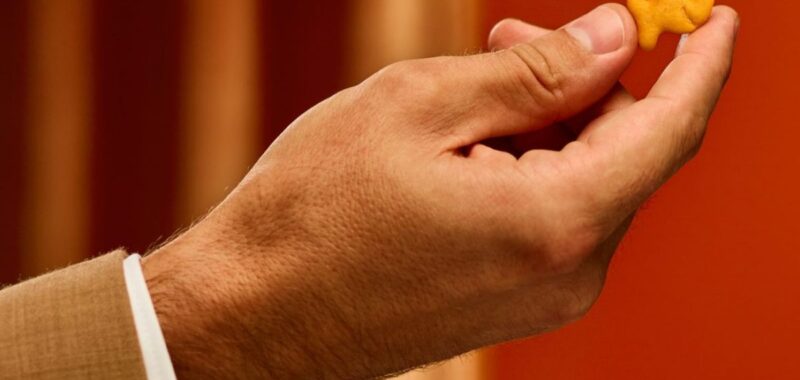Recognizing, perhaps, that there’s no better way to grab the public’s attention than a little bit of outrage, Goldfish has changed the name of its iconic cheese crackers to Chilean Sea Bass.
The move, meant to make heads whip around and perhaps stir up some free publicity for the brand, won’t affect the taste, shape or … well, anything else about the cracker. But a radical name change is one of the easiest ways for a brand to stand out in a commercial-intense world.
IHOP saw a flood of attention in 2018 when it announced it was changing its name to IHOb (International House of Burgers). The name change was a head fake, of course, but it helped the company quadruple its burger sales. Pizza Hut, in 2009, became Pasta Hut to introduced its new line of Tuscani Pastas. And Budweiser, in 2016, asked consumers to call it “America” for a brief period. (Virtually no one did but sales increased slightly.)
So what’s the goal of this name change? Luring in older customers.
The company says the name change is meant to bring back older snackers who munched on these in their younger years. Generation Z and Millennials are the target audience.
That said, it should be noted this “name change” won’t be reflected on grocery store shelves. If you want a bag of Chilean Sea Bass-branded Goldfish crackers, you’ll need to head to a specialty website to buy one (well, actually two – as they’ll be sold in pairs for $7.38 through Oct. 30).
“We know the love for Goldfish spans all ages. Chilean Sea Bass is a playful nod to adults that the iconic fish-shaped snack is for grown-up tastes too,” said Danielle Brown, vice president, Goldfish, in a statement.
The company notes that over 50% of Goldfish buyers are adults—a figure, which we must admit, confuses us a little, as we haven’t seen a lot of elementary school children in the check-out line at the grocery store.

